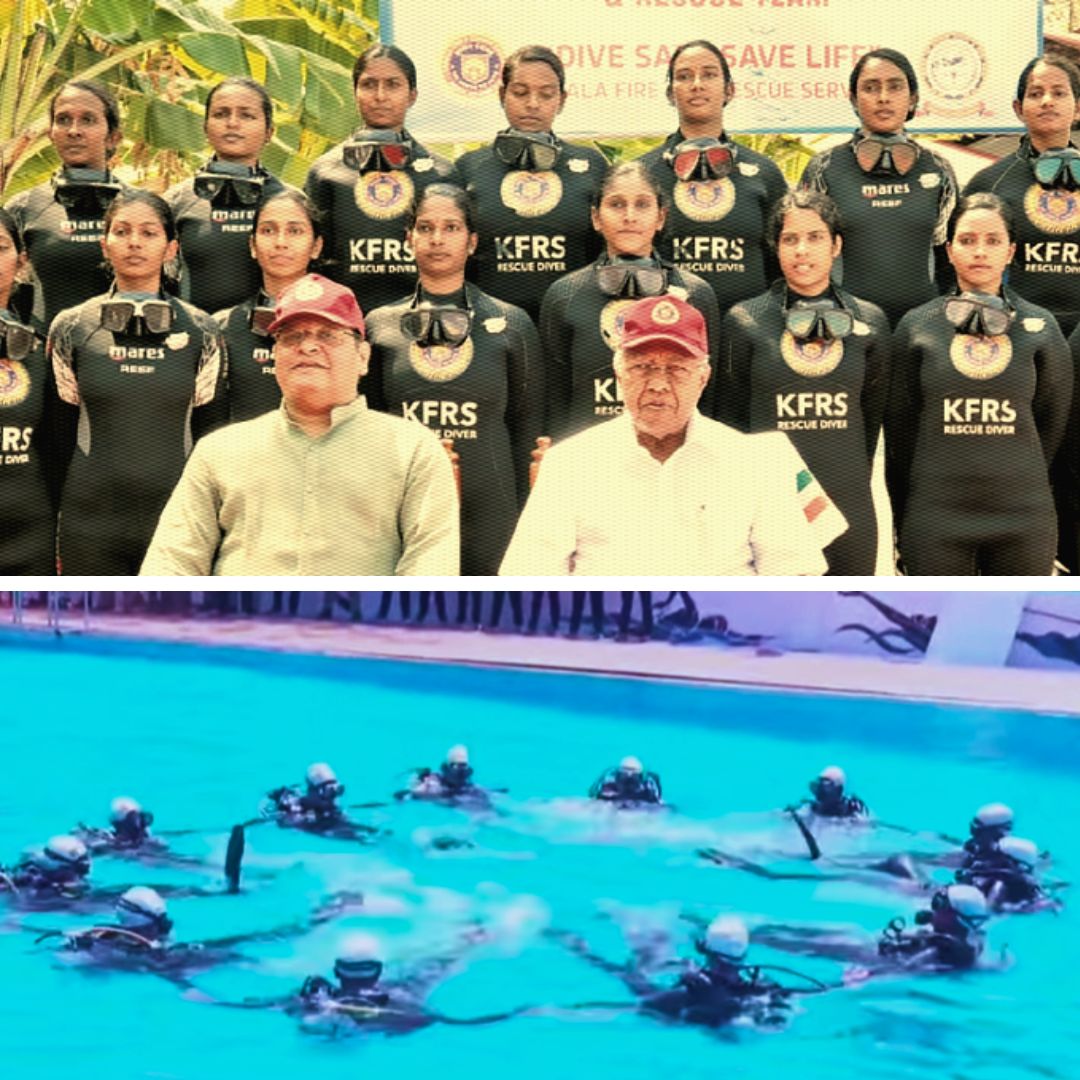Kerala has made history by launching India’s first all-women scuba diving firefighting team, “Gannets,” comprising 17 highly-trained officers ready to respond to underwater emergencies. Selected from a pioneering batch of 100 female recruits in 2024 based on their aptitude for adventure, the team’s formation underscores the state’s commitment to gender equality, modernising its fire and rescue services, and bolstering its disaster response capabilities.
This initiative sets a new standard for inclusive governance and operational efficiency in emergency services nationwide.

“Gannets” Earn Their Wings (and Fins)
The 17 members of the “Gannets,” named after the seabirds known for their diving prowess, completed a rigorous 21-day training programme at the Kerala Fire and Rescue Services Academy. Their training encompassed both theoretical and practical aspects of scuba diving, including basic and advanced open-water techniques, underwater navigation, search and rescue operations in diverse aquatic environments (swimming pools, quarries, rivers, and the open sea), and the use of specialised equipment such as underwater cameras and communication systems.

The programme adhered to international standards, ensuring that the Gannets are equipped to handle a wide range of underwater incidents at depths of up to 30 metres. During the passing-out parade, Chief Minister Pinarayi Vijayan personally awarded the team their diving badges, highlighting their exceptional performance and dedication. Sruthi P Raju, a team member, described the training as intensely challenging but ultimately empowering: “We faced tough conditions, but we learned to overcome them as a team. We are now confident and ready to serve.”

Kerala’s Progressive Policy in Action
The establishment of the all-women scuba diving team is a direct result of the Kerala government’s commitment to increasing female representation in traditionally male-dominated fields. In 2024, the Kerala Fire and Rescue Services recruited its first-ever batch of 100 female officers, marking a significant shift in the composition of the force. From this group, those who expressed interest in adventure and demonstrated the necessary physical and mental aptitude were selected for the specialised scuba diving training.
Chief Minister Pinarayi Vijayan emphasized that the government has implemented several policies and initiatives to break down gender barriers and create equal opportunities for women across all sectors. He also noted that this team reflects the government’s broader vision of a more inclusive and equitable society. P. Dileepan, director of the Scuba Diving Training Centre, stated that the syllabus was meticulously designed to instil confidence, competence, and a deep understanding of underwater rescue techniques. The team can also operate underwater cameras and use underwater communication systems for search operations.

The Logical Indian’s Perspective
Kerala’s pioneering initiative to establish India’s first all-women scuba diving firefighting team exemplifies the principles of good governance, demonstrating a proactive approach to both public safety and gender equality. By investing in specialised training for women and empowering them to take on challenging roles in emergency services, Kerala is not only enhancing its disaster response capabilities but also setting a powerful example for other states to emulate.
This initiative showcases the transformative potential of inclusive policies and highlights the importance of creating opportunities for women to excel in all fields. How can other states adopt similar strategies to promote gender equality and enhance the effectiveness of their emergency services, fostering safer and more inclusive communities across India?













